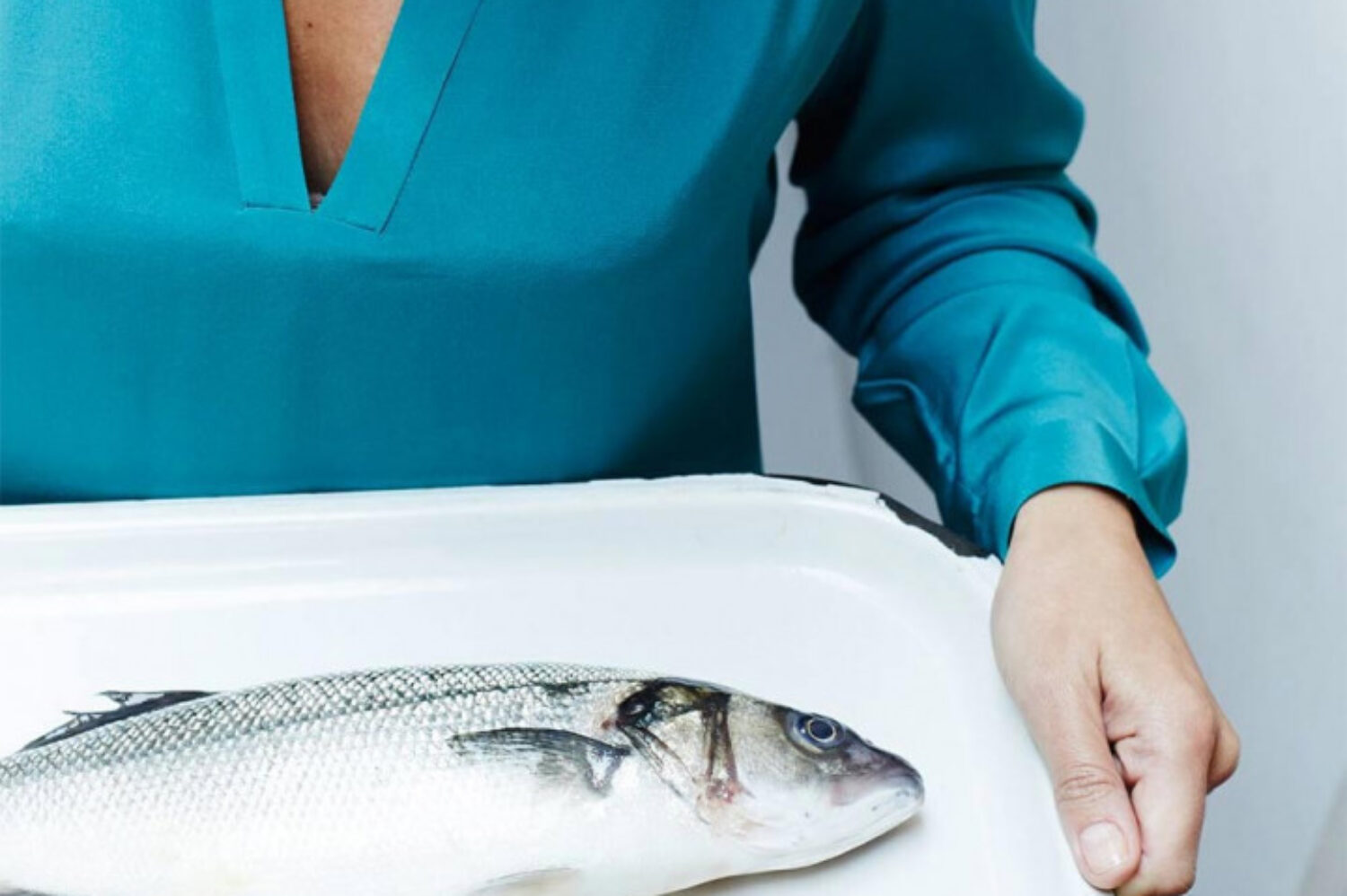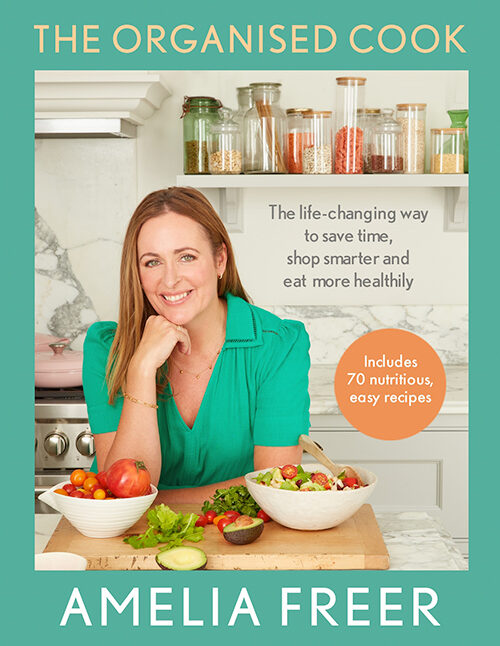Is Oily Fish Healthy?
Feb 2019
Examples of oily fish
Anchovies, Sardines, Pilchards, Herring, Mackerel, Trout, Salmon, Tuna (fresh tuna only)
What actually is an oily fish?
Oily fish differ from white fish, aside from being darker and stronger in flavour, due to their higher ‘good’ fat content. One such family of ‘good’ fats, the omega-3 fats, are thought to be very important in maintaining our health and preventing ill-health. Oily fish is one of the key sources of omega-3 fats in our diets.
Can’t we get omega-3 from plant oils, like rapeseed?
Yes, and no. ‘Omega-3’ fats are actually a collection of different fats, which we get from various sources. But it is the long-chain omega-3 fats, known as ‘DHA’ & ‘EPA’ that have been associated with the majority of health benefits in clinical studies. These are mainly found in oily fish, fish oil supplements or some phytoplankton supplement.
Plant sources of omega-3, from walnuts or rapeseed oil for example, provide us with more of the short-chain omega-3 fatty acids. Unfortunately, our bodies are rather inefficient at converting these into the more biologically active long-chain DHA & EPA forms. So, at present, it’s generally considered best not to rely on plant sources as your only source of omega-3 fats. Vegans take note.
The potential benefits of oily fish & omega-3 oils
One of the key benefits of consuming oily fish is therefore thought to come from their high concentration of these omega-3 fatty acids – although they also contain a number of other beneficial nutrients too: protein, vitamin D, iodine, potassium, iron, zinc, selenium, B vitamins and even calcium in the smallest fish (where you eat the bones, such as anchovies & sardines).
Omega-3 fats have been linked to all sorts of potential health benefits. It is important to point out that many of these research findings have not been proven in large-scale population studies, and so may therefore not be applicable to everyone. However, they do give us some enticing hints to possible future uses.
Here are a few examples of current research areas:
- They may potentially help to reduce blood triglycerides (Musa-Veloso et al., 2010), and blood pressure (Cabo, Alonso and Mata, 2012).
- They may reduce the risk of stroke (Chowdhury et al., 2012)
- EPA (one of the long-chain fish oils) could sometimes be beneficial to people diagnosed with major depression (Sarris et al., 2016).
- They may help to promote optimal growth of the brain and eyes in developing infants when consumed during pregnancy, and may also reduce the risk of pre-term delivery for some babies (Jordan, 2010).
- They could reduce the risk of autoimmune diabetes in adults (Lofvenborg et al., 2014), although there is no clear evidence that they reduce risk of the more common Type 2 diabetes.
- They could reduce your risk of developing ‘wet’ macular degeneration (a major cause of adult blindness). (Rahu et al., 2008)
If you do choose to take omega-3 oil supplements, please do make sure it is a high quality form, and that you have discussed it with a healthcare professional

As with all things nutrition related, there is almost always a balance of positives and negatives to consider:
The potential downsides of oily fish
Unfortunately, most fish and shellfish now contain some levels of pollutants or heavy metals such as PCBs or mercury. The larger oily fish, such as fresh tuna, can contain higher concentrations of these than the smaller fish (Chahid et al., 2014). This may be a concern if you eat a lot of fish, or eat mainly the largest types of fish – such as shark or marlin. Also, farmed fish may contain more pollutants, and less omega-3 fats, than wild or marine fish, although there are some examples of good practice in farmed fish production now (Rodriguez-Hernandez et al., 2017).
I would consider it sensible to therefore try to balance the benefits of eating oily fish (getting the omega-3 fats and other important nutrients) with the risks of eating too much (exposing yourself to an excess of pollutants or heavy metals).
In general, it is advised that this balance falls at around 1-2 portions of oily fish a week, ideally enjoying more of the smaller varieties (mackerel & sardines) than the larger ones (especially tuna): a portion is in the region of 140g, or 1 medium sized fillet (NHS Choices, 2017). You can also enjoy another 1-2 portions of white fish or seafood (i.e., not oily fish) on top of this per week.
A reassuring word in this complex area: It is considered better for you to eat a couple of portions of fish each week than to avoid it altogether due to anxiety regarding mercury or pollutants. The majority of the UK population does not consume enough oily fish to meet suggested dietary guidelines. In other words, be conscious of potential pollutants, but don’t let them put you off eating fish altogether.
A word on fish in pregnancy
Eating fish in pregnancy is good both for you, and for your baby (if you can stomach it!), and is therefore to be encouraged.
However, you can be a bit more vulnerable to the effects of pollutants during this important time, so the dietary advice is slightly different. This advice is also true for those who are considering pregnancy, or are trying to conceive, too.
- Avoid shark, swordfish and marline altogether, and minimise your intake of fresh tuna. The largest types of fish such as these can contain high levels of mercury which can damage a baby’s developing nervous system.
- Avoid all raw shellfish, such as oysters.
- Eat no more than 1-2 portions of oily fish per week – so that means no more than 280g/week. Ideally, try to stick to smaller types; unsmoked mackerel (look in the freezer aisle), sardines in olive oil, and organic or wild salmon or trout.
- Eat up to 1-2 portions of ‘other’ fish (such as white fish) or seafood products a week on top of this, such as canned tuna. NHS guidelines say no more than 4 cans of tuna a week, but I would suggest 2 cans per week is still a reasonable amount, particularly if you are having your oily fish as well. Eat a variety of fish wherever possible.
- Be very careful if you are taking fish oil supplements during pregnancy. Some of these, such as cod liver oil, can contain high levels of vitamin A – which can be harmful to your unborn baby. Speak to your midwife or doctor for more information.
I would also generally advise that you follow the same advice for children.
For more information on fish in pregnancy:
- nhs.uk/conditions/pregnancy-and-baby/pages/foods-to-avoid-pregnant
- nhs.uk/Livewell/Goodfood/Pages/fish-shellfish.aspx#pregnancyandchildren
Any advice about choosing sustainable oily fish?
Sometimes, it can seem like the more you know about nutrition, the more complicated it can be to decide what to eat. And then adding in environmental mindfulness to that equation can seem rather daunting. But there are lots of resources available to help you make these decisions, and once you’ve done it a couple of times it does get much simpler – I promise.
Intensive fishing and unsustainable farming practices are threatening our fish populations. Check out the Marine Conservation Society’s easy to use website to help guide the most sustainable seafood choices:
In general, I look out for either organic or wild fish whenever I can get hold of them.
A few of my preferred fish suppliers:
- lochduart.com – responsible, eco-friendly farmed salmon from Scotland.
- fish4ever.co.uk – ethical canned fish
- reelfish.co.uk – ethical canned tuna (I tend to just stick to the ones in spring water)
- newlynfreshfish.co.uk – mail order fresh fish from the traditional fishing port of Newlyn in Cornwall, packed in a leak-proof box with plenty of ice so it reaches you in great condition. You can phone or email them to arrange delivery of seasonal, wild fish to your preferences – or simply order one of their ready-made selection boxes.
MORE TO EXPLORE
Please note that the information on this website is provided for general information only, it should not be treated as a substitute for the medical advice of your own doctor or any other health care professional providing personalised nutrition or lifestyle advice. If you have any concerns about your general health, you should contact your local health care provider.
This website uses some carefully selected affiliate links. If you buy through these links, we may earn an affiliate commission, at no additional cost to you. This helps to keep all of our online content free for everyone to access. Thank you.




